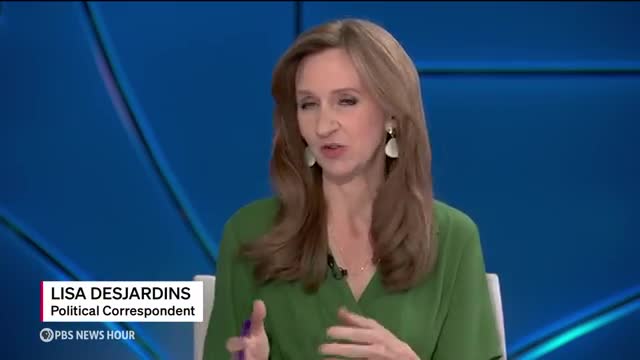Voter Discontent Grows as Candidates Struggle to Connect

This article was created by AI summarizing key points discussed. AI makes mistakes, so for full details and context, please refer to the video of the full meeting. Please report any errors so we can fix them. Report an error »

In a recent government meeting, discussions centered around the current political landscape and voter sentiment as the nation approaches the upcoming elections. A survey conducted by Maersh, in collaboration with NPR and PBS NewsHour, revealed that if elections were held today, the race would be statistically tied, with a margin of error of 4.2%. This has been a consistent trend over the past year, indicating a deeply entrenched partisan divide, with Republicans leaning towards Trump and Democrats favoring Biden. Notably, independents remain a crucial demographic, with a significant portion expressing dissatisfaction with both candidates.
Polling data highlighted that only 42% of respondents expressed satisfaction with the major party candidates, while a striking 55% reported being unsatisfied. Among independents, dissatisfaction soared to 70%. This discontent is echoed in personal accounts from voters across the country, revealing feelings of frustration, fear, and jadedness regarding the political options available.
The meeting also addressed key issues that voters prioritize, with preserving democracy topping the list at 30%, followed closely by inflation at 29%, and immigration at 19%. Notably, concern over inflation has surged by 6 percentage points since February, indicating a growing anxiety among voters despite a general decline in inflation rates.
As candidates ramp up their campaigns, the discussion turned to how these issues are being addressed on the ground. Former President Trump, during a recent rally in Wisconsin—a pivotal swing state—focused heavily on economic concerns, criticizing Biden's policies and promising to implement \"Magonomics\" to replace \"Bidenomics.\" In contrast, President Biden defended his economic record, citing job growth and lower inflation rates in the Midwest, while acknowledging that many voters still feel the pinch in their daily lives.
The meeting concluded with reflections on the broader implications of these sentiments and issues as the election approaches, emphasizing the need for candidates to connect with voters' concerns and aspirations.
Polling data highlighted that only 42% of respondents expressed satisfaction with the major party candidates, while a striking 55% reported being unsatisfied. Among independents, dissatisfaction soared to 70%. This discontent is echoed in personal accounts from voters across the country, revealing feelings of frustration, fear, and jadedness regarding the political options available.
The meeting also addressed key issues that voters prioritize, with preserving democracy topping the list at 30%, followed closely by inflation at 29%, and immigration at 19%. Notably, concern over inflation has surged by 6 percentage points since February, indicating a growing anxiety among voters despite a general decline in inflation rates.
As candidates ramp up their campaigns, the discussion turned to how these issues are being addressed on the ground. Former President Trump, during a recent rally in Wisconsin—a pivotal swing state—focused heavily on economic concerns, criticizing Biden's policies and promising to implement \"Magonomics\" to replace \"Bidenomics.\" In contrast, President Biden defended his economic record, citing job growth and lower inflation rates in the Midwest, while acknowledging that many voters still feel the pinch in their daily lives.
The meeting concluded with reflections on the broader implications of these sentiments and issues as the election approaches, emphasizing the need for candidates to connect with voters' concerns and aspirations.
View full meeting
This article is based on a recent meeting—watch the full video and explore the complete transcript for deeper insights into the discussion.
View full meeting